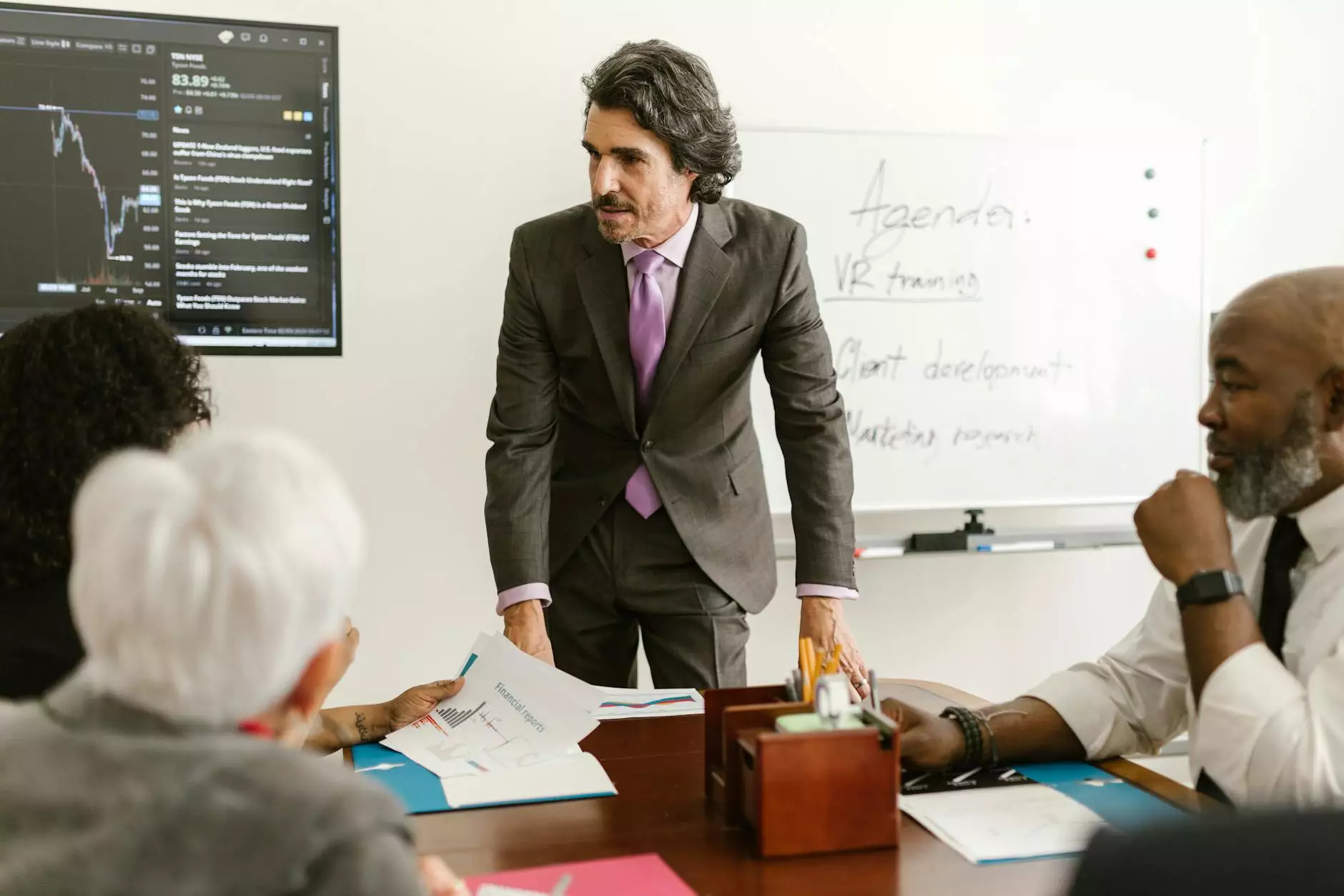Understanding Good Fake Euros: A Comprehensive Guide for Businesses

In the ever-evolving landscape of global finance, the concept of good fake euros has emerged as a significant topic for discussion. While the phrase may raise eyebrows, it encapsulates various aspects of business growth and financial security. In this article, we will delve deep into what good fake euros entail, their implications for businesses, and their intersection with banks, credit unions, and financial services.
The Basics of Good Fake Euros
Before we dive into the more intricate details, it's crucial to establish a clear definition. Good fake euros refer to counterfeit euros that are produced with high-quality materials making them challenging to distinguish from genuine currency. This phenomenon raises essential questions about legality, ethics, and its impact on the economy.
1. The Motive Behind Counterfeit Currency
Counterfeiting has existed for centuries, driven by a variety of motives, including:
- Easy Profit: Some individuals see the production of fake euros as an easy way to make money without legitimate business efforts.
- Economic Disruption: Counterfeit currencies can disrupt local economies, stealing value from honest businesses.
- Lack of Regulation: In areas with weak law enforcement, the production of good fake euros can proliferate.
2. The Quality of Good Fake Euros
Not all counterfeit currency is created equal. Good fake euros are designed with advanced printing technology, using high-resolution imagery and quality materials that mimic the feel and look of genuine notes. This sophistication presents significant challenges to businesses, banks, and financial institutions.
The Impact on Businesses
The presence of good fake euros poses substantial risks for businesses of all sizes. Understanding these risks is essential for safeguarding your financial interests.
1. Financial Losses
Businesses accepting counterfeit euros may face extreme financial repercussions. Consider the following:
- Inventory Losses: When a business unknowingly accepts good fake euros, they incur losses equivalent to the value of the counterfeit bills.
- Bank Fees: Financial institutions may charge fees for processing counterfeit transactions, further exacerbating the losses.
- Reputation Damage: Customers who discover that a business has accepted counterfeit currency may lose trust and ultimately take their business elsewhere.
2. Legal Implications
Counterfeiting is not merely a financial issue but a legal one as well. Engaging with counterfeit currency can lead to serious legal consequences:
- Criminal Charges: Businesses found knowingly accepting or producing counterfeit money may face criminal charges.
- Litigation: Legal disputes with customers or other businesses can arise from the acceptance of fake euros.
Preventing the Acceptance of Good Fake Euros
Businesses must take proactive measures to safeguard against the acceptance of good fake euros. Here are several effective strategies:
1. Employee Training
Train your staff on how to detect counterfeit currency. Key aspects to focus on include:
- Recognizing Security Features: Teach employees how to identify the security features of genuine euros, including watermarks and holograms.
- Using Detection Tools: Invest in counterfeit detection tools, such as ultraviolet lights and magnifying glasses, which can help in the detection process.
2. Collaborating with Financial Institutions
Establishing a good relationship with local banks and credit unions can provide additional support in combating counterfeiting:
- Regular Training Sessions: Attend workshops or training sessions on currency verification offered by financial institutions.
- Fraud Alerts: Register for fraud alert systems to receive timely information about counterfeit trends in your area.
The Role of Financial Services in Mitigating Risk
Financial services play a critical role in providing businesses with the tools they need to mitigate the risks associated with good fake euros. Here’s how:
1. Currency Verification Services
Many financial services offer currency verification services, which help businesses in the detection of counterfeit money through advanced technology.
2. Insurance Against Fraud
Businesses can protect themselves financially from the risks posed by counterfeit money through specialized insurance policies. Here are some options:
- General Liability Insurance: Covers various liabilities and can include some protections against counterfeit money losses.
- Fraud Insurance: Specific policies that cover losses due to counterfeit currency and other fraudulent acts.
Engaging in Ethical Business Practices
To truly thrive in a competitive landscape, businesses must focus on ethical practices and transparency. Accepting counterfeit currency, knowingly or unknowingly, erodes trust and undermines the business's integrity.
1. Building Trust with Customers
Establishing trust with customers is paramount. Consider the following:
- Transparent Policies: Clearly communicate your payment policies, including your stance on counterfeit euros.
- Customer Feedback: Encourage feedback from customers about their experiences, helping you refine your processes.
2. Community Engagement
Participating in community events can enhance your business's reputation and build goodwill.
- Financial Literacy Programs: Offer workshops to educate the community about financial matters, including the risks of counterfeit currency.
- Collaboration with Law Enforcement: Partnering with local law enforcement can enhance security and reduce counterfeiting in your area.
Conclusion: The Future of Business in Relation to Good Fake Euros
The prevalence of good fake euros is a challenge that businesses must confront head-on. By understanding the implications, implementing preventive measures, and fostering positive relationships with banks and financial services, businesses can protect themselves and thrive in an increasingly complex economic landscape.
In conclusion, the dialogue around good fake euros highlights the importance of vigilance, education, and ethical practices in the business world. Staying informed and proactive will allow businesses to navigate the risks associated with counterfeit currency and emerge stronger and more resilient.









